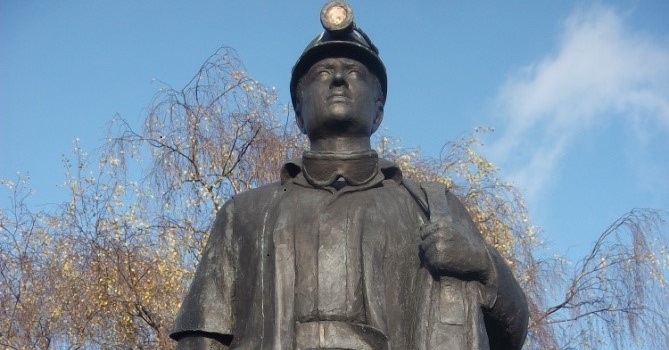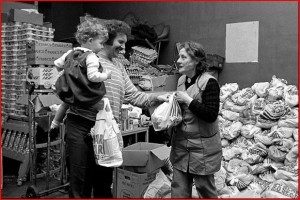Largely driven by the women the focus of the communities remained, at its heart, very personal. There was a very real desire that the communities should stand together and the women formed Action Groups, set up soup kitchens and distributed food parcels using the Miners Welfare’s as a base. Generations of women who had watched their menfolk vanish underground twelve hours a day, seven days a week, wondering if they would come up again in the same condition they went down and living in a community where everybody knew, or knew of everybody else, were never going to wilt under the pressure. Mining women were as strife hardened and resolute as their men, probably more so. The lives of whole populations and local businesses depended on coal. Without it there was no food on the table or fuel to cook it and keep warm, much less petrol for the car and holidays. My household was relatively lucky, we had no kids and I never used the soup kitchens or collected a food parcel, but I worried all the same. Months of eating dog bone stew from Monday to Saturday, begging Sunday lunch from your parents, stretching the household budget until it squealed and pleading with utility providers did away with any lingering sense of optimism. As the strike stretched on into winter, I worried all the more. I know I was not alone.


